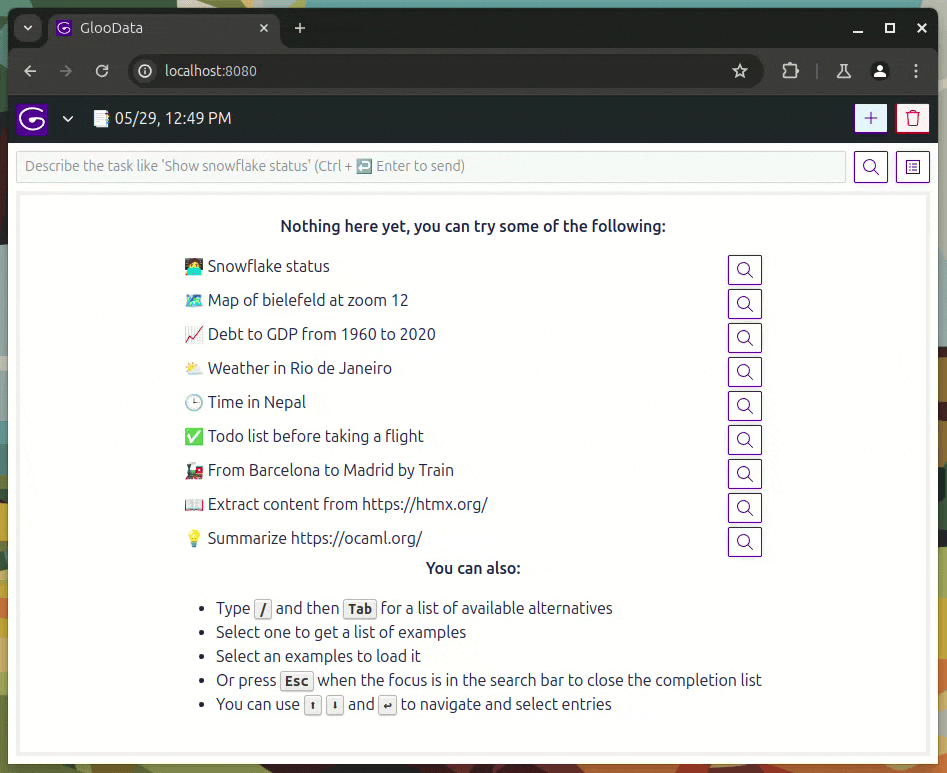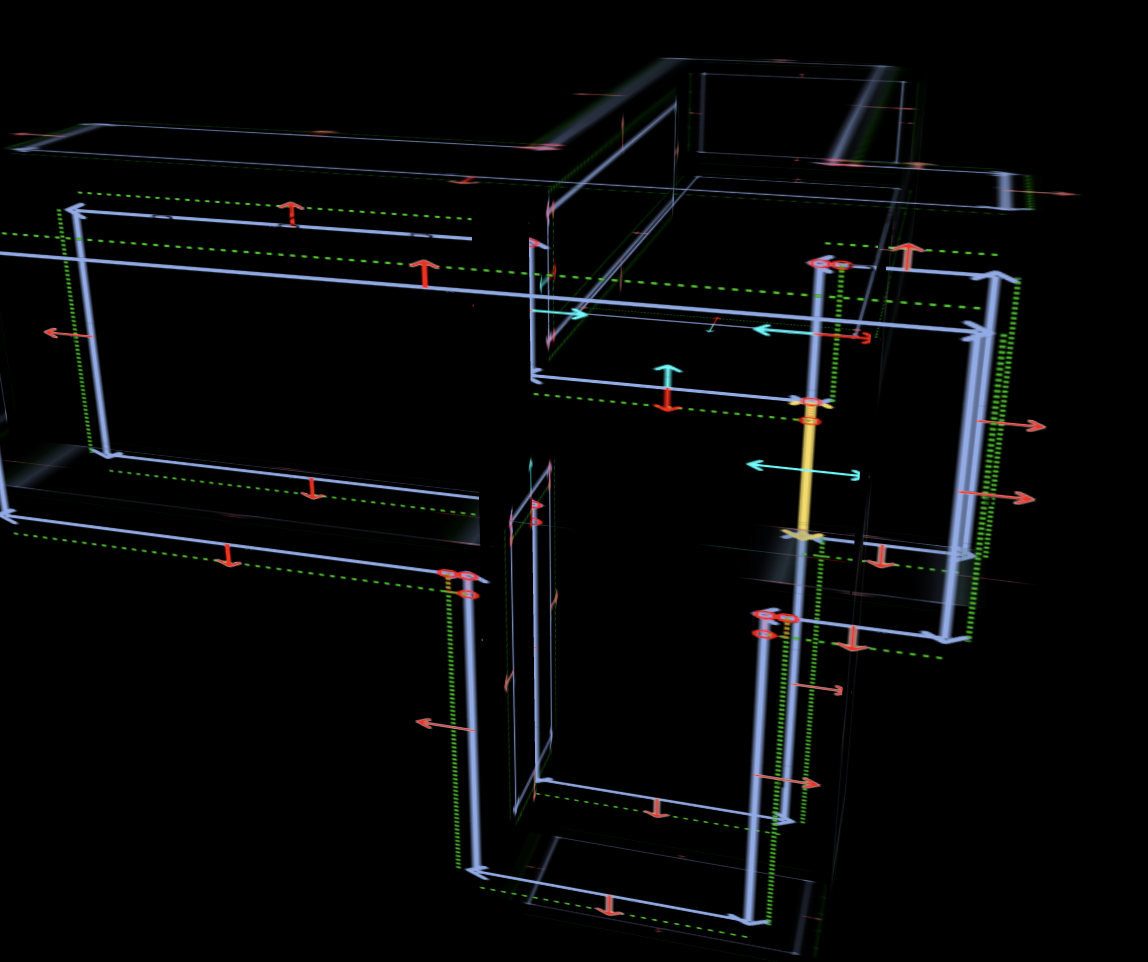✉️ Not subscribed yet? Subscribe to the Newsletter
Future of Coding Weekly 2024/06 Week 1
2024-06-02 23:16
👓 Exploring Spaces 📝 Interactive study of queueing strategies 💚 Many project updates
Two Minute Week
💚🎥 Adding ports dynamically, new sum node and integrating a basic Monaco editor via Maikel van de Lisdonk

In this video, I start with building a simple flow which counts the sum of all received values on the input ports using the new node-type "merge sum". New ports can be added dynamically from within the UI.
This is used to simplify the PID-controller example, which now much more reflects the algorithm that is shown on the wiki-page.
I've also started integrating the monaco-editor (which is the base for vs.code) into code-flow-canvas.. and in the video you can see that it is used for editing the code behind the iframe-html-node.
Another small change, is that flows now start automatically when they are loaded or after a refresh.
Our Work
How do you update your password in gloodata?
The same way you do everything else

👓 Exploring Spaces 4.5: 3D Rotations via Elliot
I made a 3D rotation explorer and I also made a big mistake in the explorer and I also fixed the mistake and now it is all good lol! Check it out and let me know what you think 🙂 vezwork.github.io/polylab/dist/demo/articles/exploring_spaces_4_and_a_half
🎥 Video
💚🧮 calculang.dev via Declan
I decided to make a pass at actually putting technical information on the calculang.dev frontpage.
My primary audience for calculang.dev is developers - due to the wide scope, I think this is important (and Steve Balmer, right?).
Other projects based on/around calculang will have a wider audience.
It's the first time I surface some information: about introspection output to help to make tools that interact with models, about a comparison to spreadsheets, a rough note about my visualization APIs. I'll expand on all these things in longer-form separately and add illustrations for some concepts (especially "flexibility"), but for now, I think it's important I have some things down that I can iterate on, and happy to hear any immediate feedback, especially about what lands especially poorly or doesn't fit! (since this is a community of developers, your feedback would be awesome for me to get to work)
I intend to push the Examples to a Gallery or Playground page instead, with just a more subtle carousal or such surfaced early in the main page
🖼️ github.com/bicycle-codes/image-element via nichoth
Hoping this is the last time I will have to write this.
💚🎥 Improved structural editor via Peter Saxton
I think this is structural editor V3. this one is back to having all navigation be AST based, i.e. up tree down tree, there is no moving cursor ability
💚💻 ReSheet via Daniel Krüger
I officially promoted ReSheet from alpha to beta!
ReSheet has undergone a lot of detailed work over the last two months that might not be noticeable unless you encountered specific issues that got improved.
Noticable will be the improved starting document which makes it much clearer what ReSheet aims to achieve and how to use it. I added a demo, better documentation, and several examples. The examples aim to demonstrate what's possible with ReSheet and the potential I see in it. I think the "Examples > Custom Blocks" and "Examples > Interactive Game Dev" pages will be especially interesting to you.
"Examples > Custom Blocks" illustrates how to integrate almost any other (web/React) library/tool. I think there’s a lot of potential if we could integrate the various tools developed here. Since many are web-based, ReSheet could potentially serve as a framework to unify them. If anyone is interested in exploring this, please send me a message! 🙂
"Examples > Interactive Game Dev" showcases the possibilities for building custom Blocks in ReSheet. It uses built-in Blocks to create a simple interactive Game Editor, featuring live programming and displaying intermediate steps/results of the code.
Let me know what you think!
📝 From Spatial to Parallel Reality Computing via Duncan Cragg
Hiya, I've published another article, which says pretty much the same as before, but consolidates some ideas and brings things up-to-date:
The magical mashability of Parallel Reality Computing...
💚🎥 Raycasting in calculang, with formulas, interactivity & explainer via Declan

I made a video explainer about raycasting, using a new experimental environment for calculang
Devlog Together
💚🪵 lazer cutting box joint generator Observable notebook via Tom Larkworthy
Had fun presenting my lazer cutting box joint generator Observable notebook at Germany FoC meetup. Feel free to DM me or leave a comment in the notebook if you want to chat more about it. I dunno how well I communicated the point, but my point is that you can solve harder problems if you can link representations. There is no representational hierarchy of best-ness, I am finding switching between representations is useful for getting the best of all worlds. The notebook contains some cool advanced observable hacks, like projecting the inbuilt "plot" data visualizer onto three.js surfaces, linking quantitive DataViz to a Spatial representation, both of which have different strengths.

✏️ github.com/uprun/GRAIL-like via Oleksandr Kryvonos
This is super-early announcement.
Since I could not find something similar to GRAIL developed by Rand corporation - I am starting my own - GRAIL-like system.
Currently only simple drawing on canvas is implemented - I plan to add basic symbol recognition next.
Code is here github.com/uprun/GRAIL-like
I am using Godot game engine for this.
🎥 Video
Thinking Together
In something like prolog, terms can be nested. So I can express the idea "Socrates believes that he is mortal" with bel ieves(socrates, mortal(socrates)). Are there any popular database types that make it easy to have relations of arbitrary arity as parameters of other relations, without unduly adding to the complexity of the schema? Preferably with ungrounded statements and open-world negation? Is there some obvious reason why not? Is there a computational complexity problem that arises in the real world? RDF allows triples to be referenced, I believe, but you are limited to arity 2, which seems needlessly limiting. Labeled graphs have arbitrary arity for non-entities, but entities are limited to two, and you usually can't refer to an edge. It seems... weird to me. Is it just that we don't really have the efficient reasoners over those kinds of expressions, so it hasn't been useful?
What conference would people recommend, preferably ones still to happen this year, which are a good place to discuss FoC topics
Content
📝 Queueing – An interactive study of queueing strategies – Encore Blog via Mattia Fregola
Really lovely interactive exploration on queueing
In this blog, we go on an interactive journey to understand common queueing strategies for handling HTTP requests.
🎥 Verse Update I State of Unreal 2024 via Dany

In this sponsored talk we take a look at the latest Verse features and what's coming soon to the language and framework.
📝 Sheet Happens via Mariano Guerra
But until I put the numbers in and tried to write about them… I did not know what I was trying to count, or what it would be possible to count. The spreadsheet is not a neutral tool of objective social quantification: it is the story of my research process.
🕸️ Graphs, Metagraphs, RAM, CPU via Nilesh Trivedi
This paper argues that Metagraphs are simpler and more efficient to represent graph data.
Present Company
💚🎥 FoC Virtual Meetup via Ivan Reese

Recording of last week's Future of Coding virtual meetup
👨🏽💻 By 🐘 @[email protected] 🐦 @warianoguerra
💬 Not a member yet? Check the Future of Coding Community
✉️ Not subscribed yet? Subscribe to the Newsletter / Archive / RSS
🎙️ Prefer podcasts? check the Future of Coding Podcast